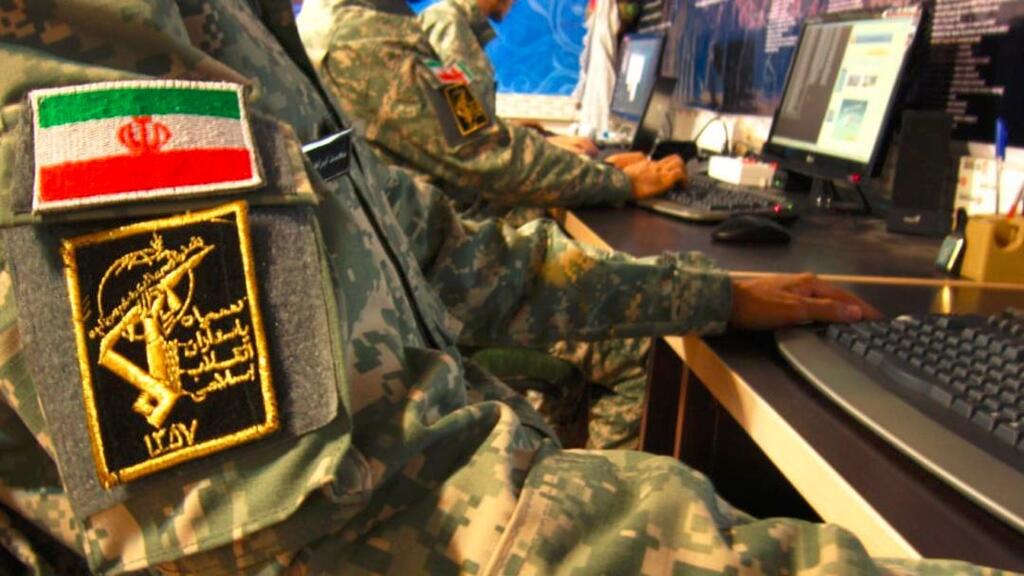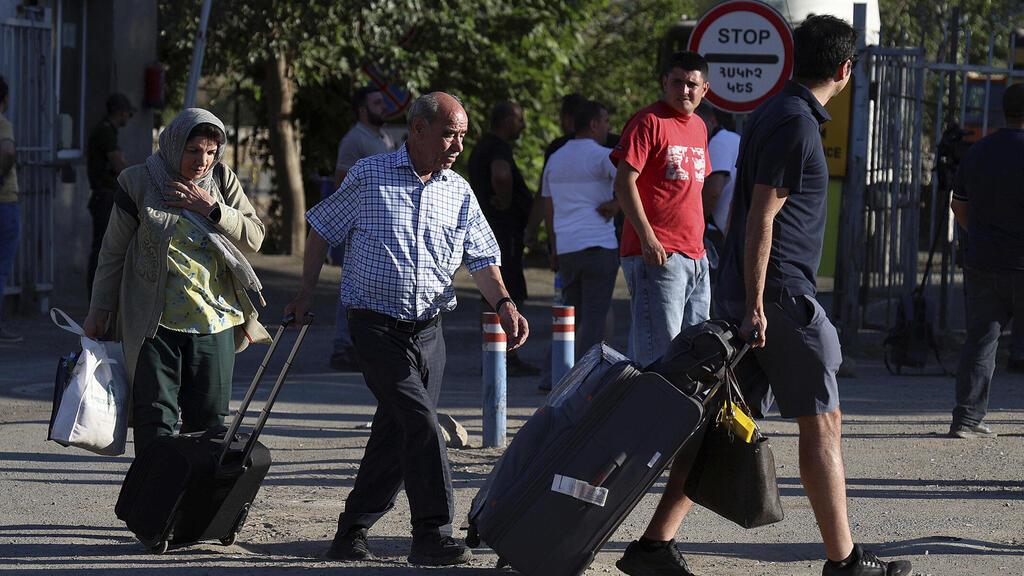Getting your Trinity Audio player ready...
Iranians attempting phone calls in recent days encounter a mysterious 90-second robotic message. "Hello and thank you for listening; life is full of unexpected surprises and these surprises can sometimes bring joy and sometimes challenge us," the recording said.
The unsettling recording also advises callers to close their eyes and imagine themselves in a place bringing "peace and happiness." Amid the severe information blackout affecting Iran's 90 million citizens since the start of the conflict, it remains unclear whether this bizarre audio results from an Israeli cyberattack or deliberate government blocking.
Internet access was almost entirely severed last Wednesday, officially to prevent Israel from tracking officials and nuclear scientists but likely driven by fears of social media-fueled protests akin to the Arab Spring. Monitoring group NetBlocks confirmed internet traffic plummeted to near zero.
Government spokeswoman Fatemeh Mohajerani claimed Friday the restrictions addressed "cyberattacks and security," citing alleged enemy drone control via internet, cryptocurrency exchange breaches and significant data leaks.
She referenced recent major cyberattacks on Iran's largest bank, Sepah, another bank, Pasargad and the Nobitex crypto exchange – claimed by the pro-Israeli hacker group "Predatory Sparrow."
While unconfirmed as an Israeli operative, global tech sites assess the group acts on Israel's behalf. Separately, hacker group Tapendan claimed Monday it breached Iran's banking system, exposing personal data from 73 million accounts.
The blackout extends beyond access: State TV urged citizens to delete WhatsApp entirely, alleging the app "collects user data for Israeli intelligence." Meta, WhatsApp's parent company, countered that it does not track precise locations, store sender information or monitor private messages.
Iran's Cyber Police (FATA) warned citizens against opening suspicious links, while regime officials and security personnel received stricter orders: a ban on all internet-connected devices including smartphones, laptops, smartwatches and any network-capable gadget. The Revolutionary Guard-aligned Fars News Agency stated these devices enable surveillance and assassination.
Contrary to perceptions of technological backwardness, Iran possesses advanced domestic tech capabilities despite sanctions.
Iranian startups developed successful local alternatives like e-commerce platform Digikala (similar to Amazon) and ride-hailing app Taps (similar to Uber), alongside digital banking, messaging apps, search engines, remote learning software, security programs and video games.
Get the Ynetnews app on your smartphone: Google Play: https://bit.ly/4eJ37pE | Apple App Store: https://bit.ly/3ZL7iNv
Iran ranks among the top five countries for mobile growth rates (over 20%) in the Middle East, with 4G coverage reaching 92% of the country and 5G serving 20 million users. Iranians average 1.7 mobile devices per person, higher than the U.S. average of 1.2.
The internet shutdown severed citizens from essential daily functions – online payments, financial transactions, navigation – exacerbating frequent power cuts, cash shortages and endless fuel queues. Telecom companies struggle to balance government disruptions crippling SMS, data and critical services against maintaining "service continuity."
Without mapping services, families fleeing conflict zones get lost on roads; reports emerged of people distributing water to stranded motorists after digital maps failed. A driver for ride-hailing app Snapp lamented: "With navigation systems down I simply cannot work... How am I supposed to support my family now?"
Beyond economic harm, the blackout prevents Iranians from accessing Israeli strike warnings. The IDF's Persian-language spokesman Kamal Penhasi publishes detailed alerts with maps online but blocked access leaves citizens fearing for their lives. "It feels like we're in a dark cave," an Iranian fleeing Tehran told The New York Times.
Cyber security expert Amir Rashidi, specializing in Iran, told DW: "The internet is being suppressed by the security apparatus, who see it as an enemy and want to control it." Disconnection fuels rumors; a former Revolutionary Guard commander this week urged citizens to check rooftops for "micro-drones," alleging opposition groups smuggled them into cities.
For years, Iran developed censorship infrastructure, including the state-controlled National Information Network (NIN) – promoted as an alternative but sparsely used. During the blackout, NIN and state broadcasters (three national radio stations, two TV networks, dozens of local outlets) provide only partial, biased updates, focusing heavily on damage to Israel.
Illegally, satellite TV use remains widespread; over 30% of Iranians reportedly watch uncensored international channels. Last Wednesday, Iran’s state TV news channel was briefly hacked with on-screen messages urging protests, broadcasting images from demonstrations following Mahsa Amini's death.
Iran's state TV hacked
Internet blocks aren't new: Iran imposed its first international blackout during 2019 fuel price protests and cut WhatsApp/Instagram access after Amini's 2022 death. Many Iranians learned to bypass blocks using VPNs, previously tolerated.
This time, restrictions are strictly enforced by Iran's Supreme National Security Council and Communications Ministry. Some Iranian startups offered free VPN access information to enable news access, though many services were disrupted after Israeli strikes.
During brief connectivity lulls, citizens uploaded homemade videos of strike damage; some even relayed messages to relatives abroad. When partial internet returned briefly last Saturday, VPN providers urged caution on Telegram: "For your own good, don’t share the link. The server will be disconnected and our work will only get harder."










